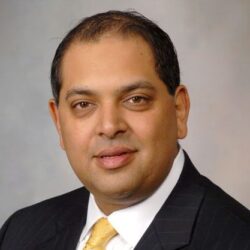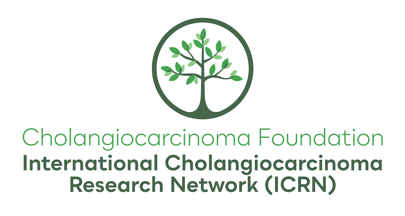Kabir Mody

| Name | |
| Kabir Mody | |
| Organization | |
| Mayo Clinic | |
| Can you tell us a bit about yourself? | |
| I am of Indian descent, born and raised here in the US, mostly in New England. After college in Boston and a masters in NYC, followed by medical school in Grenada, I pursued internal medicine residency at St Luke's-Roosevelt Hospital in NYC and fellowship at Dartmouth Hitchcock Medical Center in New Hampshire. I then settled here in northern Florida at Mayo Clinic and am blessed and excited to work with such passionate, intelligent, patient-focused colleagues both here at Mayo Clinic and around the country. I live with my wife Nicole and our 2 young children, Grace and Nicholas. I love to play tennis, golf and pretty much any sport. I am also a die hard world traveler, never missing an opportunity to go somewhere new! | |
| Can you share one or two of your specific research interests? | |
| My 2 primary research interest are: a. the use of circulating tumor DNA in hepatobiliary malignancies b. immunotherapy in hepatobiliary malignancies - in particular, novel therapeutics and incorporation into multi-modality treatment strategies, and modeling of hepatobiliary malignancies in the lab to enable personalized immunotherapy treatment for patients. |
|
| Why did you decide to specialize in hepatobiliary cancers? | |
| I was drawn to hepatobiliary cancers, particularly cholangiocarcinoma, after an unforgettable patient I cared for early in my hematology/oncology fellowship. Realizing the immense need for attention to the disease, research in the disease, and newer more effective treatments for patients, I immediately dedicated myself and my career to advancing the field for patients and toward a cure. | |
| Can you tell us one thing collaboration with colleagues could accomplish that you could not accomplish on your own? | |
| In an uncommon cancer, such as cholangiocarcinoma, collaboration with colleagues dedicated to the care of patients with this disease is key. Collaborations enable joint brainstorming and discovery of new questions and ways of looking at things, in addition to enabling collection of larger amounts of data needed to answer important questions we have about this malignancy with more rigor and confidence. Additionally, these collaborations, such as that championed by the ICRN, stimulate thought provoking discussions and summon collective motivation and dedication to pursuing significant progress in this disease. These collaborations often also allow us the opportunity to involve patients in research efforts, offering their vitally important perspective. | |
| If you had access to one resource that would move your research forward, what would that resource be? | |
| More research funding dedicated specifically toward hepatobiliary malignancies. | |
| How did you learn about the Cholangiocarcinoma Foundation? | |
| I was initially introduced to the foundation by colleagues here at Mayo Clinic, and invited to come to the annual meeting in 2015. I immediately fell in love with the people involved, their collective motivation and passion for the disease. I have been actively involved ever since. | |
| Can you tell us why you became a member of the ICRN? | |
| I was fortunate to be involved with the Cholangiocarcinoma Foundation during the inception of the ICRN, and have been excited to be involved as it affords us, as a community, to collectively and collaboratively mobilize toward a single goal on the research front in an organized fashion. The collaboration has stimulated thought provoking conversations and questions, and has brought us together with key industry and non-profit partnerships, all of which has already benefited our patients and continues to help drive dedicated research into cholangiocarcinoma and progress toward a cure. | |
